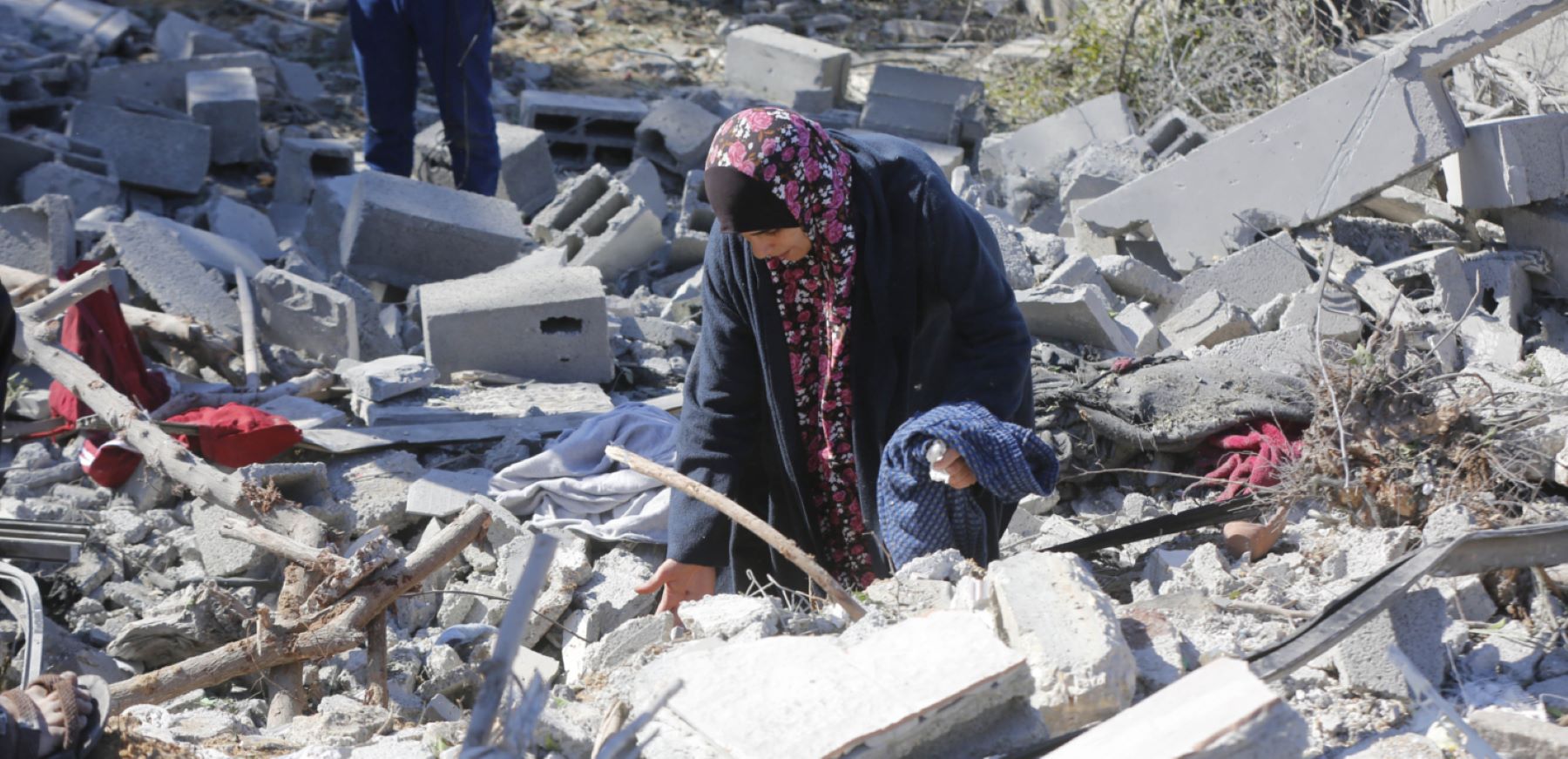Responding to the news that a deal has been agreed to release at least 50 hostages, mostly Israeli women and children, in exchange for the release of 150 Palestinian detainees, many of them children, and an initial four-day long humanitarian pause in the fighting between Israeli forces and Hamas and other armed groups in the occupied Gaza Strip, Amnesty’s Agnès Callamard said:
“The news that at least 50 hostages held by Hamas and other armed groups and 150 Palestinian detainees in Israeli jails will be released will be a welcome relief for all those involved and their families. But far more action is needed to address ongoing suffering and injustice.
“While the terrifying ordeal should come to an end for hostages who are released, their trauma will be long-lasting. We reiterate our call for all armed groups to immediately release all other civilians who continue to be held hostage in Gaza. The release of Palestinian detainees should not be a pre-condition for releasing hostages. Hostage-taking is a war crime, those responsible for abducting and depriving civilians of their liberty must be held accountable.
We reiterate our call for all armed groups to immediately release all other civilians who continue to be held hostage in Gaza. The release of Palestinian detainees should not be a pre-condition for releasing hostages. Hostage-taking is a war crime, those responsible for abducting and depriving civilians of their liberty must be held accountable.
Amnesty International’s Secretary General Agnès Callamard
“We also call on the Israeli authorities to release all Palestinians detained unlawfully, including those held without charge or trial in administrative detention. Those expected to be released include many children – the youngest aged 14 – many whom are detained but have not yet been convicted. Israel must abide by its obligation to release arbitrarily detained Palestinian prisoners at all times.
“In recent weeks Amnesty’s research has highlighted an alarming deterioration in conditions for Palestinian detainees including punitive torture and humiliation of detainees, a spike in the use of administrative detention and the imposition of abusive ‘emergency’ measures in prisons facilitating cruel and inhumane treatment of detainees. Arbitrary detention and torture and other ill-treatment are war crimes when committed against protected persons in an occupied territory.
“The four-day humanitarian pause will bring a brief respite to more than 2 million civilians who have borne the brunt of Israel’s ruthless daily onslaught in the occupied Gaza Strip. But halting the fighting for a matter of days is nowhere near enough to address the catastrophic suffering or relieve the horrifying harm to civilians.
“We call on all the negotiators involved in this first pause, the Israel authorities and Hamas and other armed groups to do absolutely everything in their power and influence to ensure that this humanitarian pause is extended into a sustained ceasefire. Humanity must prevail. Not just a little bit of it.
“So far Israel’s ruthless bombardment has brought mass bloodshed and suffering to millions and has been unparalleled in its intensity and the scale of devastation and suffering. More than 14,000 people, including 5,500 children, have been killed in Gaza. Over 1,200 people have been killed during the horrific attacks by Hamas and other armed groups in Israel on 7 October. Israel’s intensified siege has also cut off water, food, medical supplies and fuel to a people in desperate need in a deliberate act of cruelty intended as collective punishment of Gaza’s civilian population.”
So far Israel’s ruthless bombardment has brought mass bloodshed and suffering to millions and has been unparalleled in its intensity and the scale of devastation and suffering. More than 14,000 people, including 5,500 children, have been killed in Gaza.
Amnesty International’s Secretary General Agnès Callamard
Amnesty reiterates its call for a meaningful and effective ceasefire – one that cover the whole of the Gaza Strip and is of sufficient duration to allow for a substantive alleviation of suffering; one predicated on the free and safe movement of civilians and humanitarian personnel throughout the Strip; one that will allow for the dead to be recovered, buried and mourned, the wounded to be properly taken care of and treated, the hospitals and clinics to be repaired and to receive essential materials.
Amnesty also reiterates its demand that independent observers, including staff from the United Nations High Commissioner for Human Rights, the Commission of Inquiry for Israel and OPT, the UN Special Rapporteur on OPT, the International Criminal Court and human rights organizations such as Amnesty International should be given access to the Gaza strip to conduct investigations into the situation on the ground, including unlawful air and ground strikes and other violations of international humanitarian law by all parties.
Amnesty’s statement on what a cease fire should include is here.
Background on the agreement to release hostages:
Under the agreed deal 50 at least Israeli women and children hostages will be released over a four-day humanitarian pause in the fighting. For every 10 additional hostages released the ceasefire will be extended by one day.
The hostage and prisoner deal could potentially include a further 50 hostages and up to 300 Palestinian detainees whose names were published by the Israeli ministry of justice. Media reports indicate that the pause could potentially be extended up to a maximum of 10 days.
What else you can do
For more ways to take action and further information on the current crisis and Amnesty’s work on Israel and the Occupied Palestinian Territories, check out the action toolkit on our country page.
Top image: DEIR AL BALAH, GAZA – NOVEMBER 21: Residents make search and rescue efforts following an Israeli attack on a house belonging to the al-Haj family at the Nuseirat refugee camp in Deir al-Balah, Gaza on November 21, 2023. (Photo by Ashraf Amra/Anadolu via Getty Images)






















